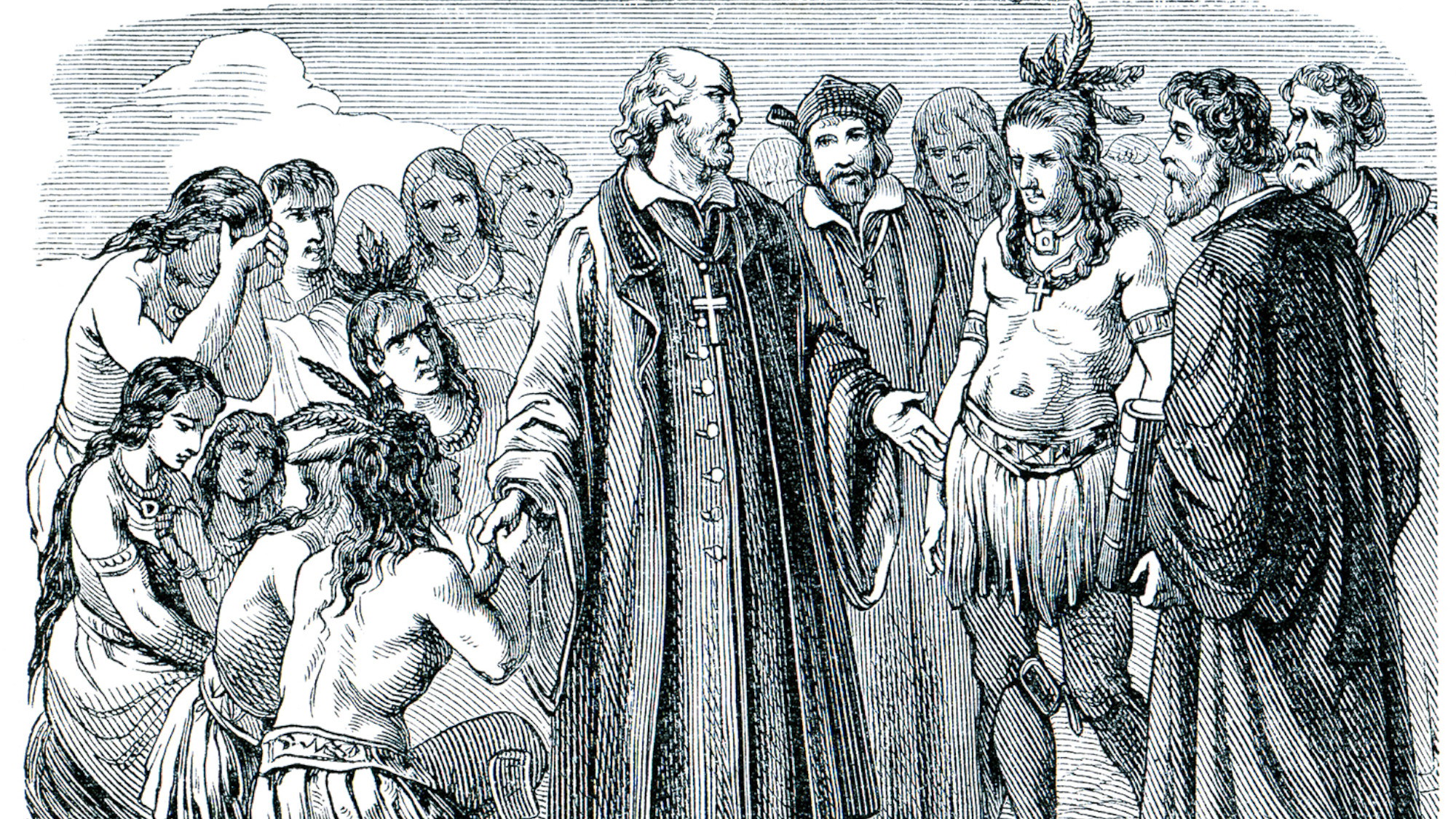Book reviews: 'America, América: A New History of the New World' and 'Sister, Sinner: The Miraculous Life and Mysterious Disappearance of Aimee Semple McPherson'
A historian tells a new story of the Americas and the forgotten story of a pioneering preacher

A free daily email with the biggest news stories of the day – and the best features from TheWeek.com
You are now subscribed
Your newsletter sign-up was successful
'America, América: A New History of the New World' by Greg Grandin
Greg Grandin's "stirring" new history puts forth a surprising argument, said Jennifer Szalai in The New York Times. While demonstrating across 737 pages that the story of the United States can't be separated from that of the nations and territories that share the Western Hemisphere, the Pulitzer Prize–winning Yale historian presents Latin America as a beacon of human rights that has found the U.S. to be an at-best contentious New World ally. Grandin isn't blind to the genocidal violence of Spain's and Portugal's conquistadors. But he claims that the horrors of the conquest prompted a moral revolution that Latin America has carried into the present in its commitment to universal equality and international cooperation. While Grandin's devotion to this theme "sometimes verges on the sentimental," he's "such a terrific writer and perceptive historian that I was swept along by his enthralling narrative."
The first true hero of Grandin's account is Bartolomé de las Casas, said Patrick Iber in The New Republic. The future Dominican priest landed in Hispaniola as a colonizer just 10 years after Christopher Columbus, but he evolved into a fierce advocate for the rights of Indigenous people, and the theological debate he initiated is "as plausible an origin story for global human rights and international law as any." Grandin's award-winning previous book, The End of the Myth, examined the role of the frontier in the U.S. expansionist mindset, and he argues here that Las Casas and his heirs had a starkly different understanding of the world because the Spanish had encountered occupied territories, not lands already emptied out by European-borne disease. Influenced by that experience, the Spanish-American republics that emerged in the decades after the American Revolution put far greater emphasis in their constitutions on providing universal goods. But while much of this neglected history should be shared, Grandin is so eager to paint the U.S. as the relative moral laggard that the conclusions he reaches are "plagued by exaggerations."
For starters, "the U.S. hasn't always been the bully of the hemisphere," said Ieva Jusionyte in the Los Angeles Review of Books. The nation truly was a good neighbor during Franklin Roosevelt's reign. Grandin acknowledges that, said Daniel Geary in The Irish Times. But he justifiably also revisits the many occasions when the U.S. has aided in the overthrow of democratically elected Latin American governments. His "extraordinarily ambitious" book doesn't provide the entire history of the New World, as its subtitle promises. Even such key events as 1846–48's Mexican-American War "happen offstage." But the story he tells is so dramatic and far-reaching that it "reads at times as the historical equivalent of the great epic novels of a Gabriel García Márquez."
The Week
Escape your echo chamber. Get the facts behind the news, plus analysis from multiple perspectives.

Sign up for The Week's Free Newsletters
From our morning news briefing to a weekly Good News Newsletter, get the best of The Week delivered directly to your inbox.
From our morning news briefing to a weekly Good News Newsletter, get the best of The Week delivered directly to your inbox.
'Sister, Sinner: The Miraculous Life and Mysterious Disappearance of Aimee Semple McPherson' by Claire Hoffman
Back when Aimee Semple McPherson was a name known around the world, "genuine celebrity was rare," said Christine Rosen in The Wall Street Journal. Though she's not widely remembered today, the self-invented Pentecostal preacher was "an early and astute student of fame," which makes her a compelling subject for a writer as "lively" as Claire Hoffman. McPherson, who opened one of America's first mega-churches and pioneered the use of broadcast media to spread Christianity, has been the subject of biographies before. But Hoffman "gives us an incisive and devastating exploration of early-20th-century fame," rendering McPherson knowable in a new way. She seemed to be running every day of her life, and "we can now run along with her."
Sister, Sinner is "wonderfully thorough" until the story takes a crucial turn, said Casey Cep in The New Yorker. McPherson, we learn, was born in Ontario in 1890, converted to Pentecostalism just before marrying a traveling preacher at 17, and by 20 was preaching on the ship that carried her home from Hong Kong as a widow. Feeling a call to make preaching a career, she landed first in Florida, then Los Angeles, and built a following. Soon, she was preaching to 7,000 people every day, and she was at the peak of her influence at age 35 when she went missing and was presumed dead. A month later, she reappeared at the Mexican border, claiming she'd been kidnapped. But while Hoffman describes the resulting legal and media circus, she refuses to conclude that the story was a lie. "As a result, by the end of this otherwise magnificent biography, McPherson has once again managed to disappear."
McPherson didn't then quit her calling, said Carolyn Kellogg in the Los Angeles Times. She continued to draw adoring crowds and poured church money into relief efforts during the Great Depression. "Something, however, had deeply changed," and "this is where nonfiction can be delightfully tantalizing—we are left to imagine why." Why did her mother split with her? Why did her sermons become darker? Back then, her story was "a must-read thrill ride." With Sister, Sinner, "it is again today."
A free daily email with the biggest news stories of the day – and the best features from TheWeek.com